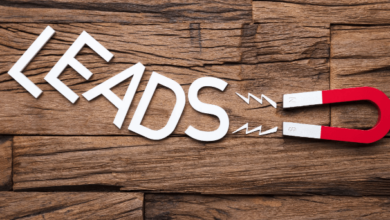what not to do after a root canal

Ignoring Post-Treatment Discomfort
It’s totally normal to feel a bit off after a root canal. Your tooth has been through a procedure, after all. But sometimes, people expect the discomfort to vanish instantly, and when it doesn’t, they get worried. It’s important to remember that some level of sensitivity or soreness is expected for a little while.
Expecting Immediate Pain Relief
While the goal of a root canal is to eliminate pain caused by infection or damage, it doesn’t mean you’ll be pain-free the second you leave the dental chair. Think of it like any other medical procedure; there’s a healing process involved. You might feel some tenderness or mild discomfort for a few days. If you’re in Manhattan Beach and experiencing this, don’t panic. Your manhattan beach dentist will have given you specific aftercare instructions.
Overlooking Persistent Swelling
Some minor swelling around the treated tooth or gum area can occur. It’s usually a sign that your body is responding to the treatment and healing. However, if you notice significant swelling that doesn’t go down, or if it seems to be getting worse, that’s something you shouldn’t ignore. It could indicate a developing infection or another issue that needs attention from your dentist.
Neglecting Mild Sensitivity
Sensitivity to hot or cold, or even to pressure when you bite, is quite common after a root canal. This sensitivity usually fades over time. What you shouldn’t do is just live with it indefinitely. If that mild sensitivity lingers for weeks, or if it starts to feel more intense, it’s a signal to call your dental professional. They can check if everything is healing as it should or if further steps are needed. It’s always better to be safe than sorry, especially when it comes to your oral health.
Resuming Normal Eating Habits Too Soon
After a root canal, your tooth needs some time to recover. It’s tempting to just go back to eating whatever you want, but that’s a mistake. Your tooth is still a bit fragile, and jumping back into your old eating habits too quickly can cause problems. Think of it like this: you wouldn’t run a marathon the day after surgery, right? Your mouth is similar.
Biting Down on Hard Foods
This is a big no-no. Foods like hard candies, ice, or even crusty bread can put a lot of pressure on your treated tooth. This pressure can lead to cracks or damage, which is the last thing you want after going through a root canal. It’s better to stick to softer options for a while.
Chewing on the Treated Side
It might feel natural to chew on the side of your mouth that doesn’t hurt, but if that’s the side with the root canal, you need to be careful. Try to distribute the chewing force evenly across both sides of your mouth. If you keep favoring the treated side, you might end up putting too much stress on it, even with softer foods.
Consuming Sticky or Chewy Foods
Things like caramel, taffy, or even some dried fruits can be a real challenge. These foods can stick to your tooth and pull on the temporary filling or crown, potentially dislodging it. It’s best to avoid them until your dentist gives you the all-clear. A good Manhattan Beach dentist will advise you on this. If you’re looking for an Invisalign dentist in Manhattan Beach, they can also offer guidance on post-procedure care.
Remember, patience is key. Your tooth needs a chance to heal properly, and that includes giving it a break from tough foods.
Skipping Follow-Up Dental Appointments
Skipping out on your follow-up dental appointments after a root canal is a big mistake. Your dentist, like the ones you might find at a great manhattan beach dentist office, needs to check how things are healing. It’s not just about them seeing you; it’s about making sure your tooth is on the mend and there aren’t any hidden issues popping up.
Missing Scheduled Check-ups
Think of these check-ups as a progress report for your tooth. Your dentist will want to see you a few times after the procedure. They’ll be looking for signs of infection or other problems that might not be obvious to you. Missing these appointments means you’re flying blind when it comes to your oral health. It’s like not checking the mail – you never know what important notices you might be missing.
Ignoring Dentist’s Recommendations
Your dentist will give you specific instructions based on your situation. Maybe they told you to use a special mouthwash, or perhaps they advised against certain foods for a bit longer. Ignoring these tips can set back your healing. They aren’t just suggestions; they’re part of the plan to get your tooth back to normal. If you’re thinking about cosmetic options like invisalign dentist in manhattan beach can help, but you need a healthy foundation first.
Delaying Necessary X-rays
X-rays are super important after a root canal. They let the dentist see what’s happening inside the tooth and around the root that they can’t see with the naked eye. These images help them confirm the root canal was successful and that the bone around the tooth is healing properly. Putting off X-rays means potential problems could go unnoticed, which is the last thing you want.
Poor Oral Hygiene Practices
After a root canal, keeping your mouth clean is super important, but you have to be careful. It’s easy to get a little too enthusiastic with your brushing or rinsing, thinking you’re doing a good job, but you might actually be causing more harm than good.
Aggressive Brushing
Scrubbing too hard around the treated tooth can irritate the area and potentially damage the temporary filling or crown. Gentle, consistent cleaning is the name of the game. You want to remove plaque and food particles without putting extra stress on the healing site. Think of it as a gentle massage for your gums, not a power wash.
Using Harsh Mouthwashes
Some mouthwashes, especially those with a high alcohol content, can be really drying and irritating. This can slow down the healing process and make the area feel worse. It’s better to stick with a mild, non-alcoholic rinse or just warm salt water if your dentist recommends it. Ask your Manhattan Beach dentist for specific product suggestions if you’re unsure.
Forgetting to Floss Around the Tooth
While you need to be gentle, skipping flossing around the treated tooth entirely isn’t the answer either. Plaque buildup can still cause problems. The trick is to use a floss threader or a soft-pick type of floss to carefully navigate around the tooth, avoiding any direct pressure on the gum line near the procedure site. If you’re considering straightening your teeth, an invisalign dentist in manhattan beach can help you maintain excellent hygiene throughout your treatment.
Remember, the goal is to keep the area clean and free from bacteria without causing further irritation or compromising the dental work. Patience and a gentle touch are key.
Overexerting Yourself Physically
After a root canal, your body is still recovering, and pushing yourself too hard physically can really set back the healing process. It might seem like a good idea to get back to your normal routine, but it’s important to be mindful of your energy levels and how your body feels.
Engaging in Strenuous Activity
Think about it: your body just went through a dental procedure. While it’s not major surgery, it’s still a process that requires your body to focus on healing. Jumping back into intense workouts, like a long run or a demanding gym session, can increase blood flow and potentially cause discomfort or even bleeding at the treated site. It’s better to stick to light activities for a few days. Maybe a gentle walk is more appropriate than hitting the treadmill hard.
Lifting Heavy Objects
This one is pretty straightforward. Lifting heavy things puts a strain on your entire body, including your jaw and head. The pressure can transfer to the area where you had the root canal, leading to pain or swelling. Even simple tasks like carrying groceries or moving furniture should be avoided for a while. If you need help, don’t hesitate to ask someone. It’s not worth risking your recovery for.
Participating in High-Impact Sports
High-impact sports are a definite no-go immediately after a root canal. Think about sports where there’s a risk of getting hit in the face or jaw, like basketball, soccer, or even certain martial arts. A blow to the mouth could be disastrous for the healing tooth. It’s best to sit these out until your dentist gives you the all-clear. You can always catch up on your favorite sports later. For those in the area looking for a great manhattan beach dentist, it’s always good to have a reliable professional you can trust for all your dental needs, including specialized care like an invisalign dentist in manhattan beach.
Remember, your body is working hard to heal. Give it the rest it needs. Pushing too much too soon can lead to complications that prolong your recovery time.
Self-Medicating Without Consultation
After a root canal, it’s natural to feel some discomfort. However, reaching for the medicine cabinet without talking to your dentist can lead to more problems than it solves. Your dentist, like the team at a Manhattan Beach dentist office, knows your specific situation and can guide you on the best pain management. They might suggest something over-the-counter, or they might have a prescription that’s better suited for your recovery.
Taking Unprescribed Painkillers
It might seem like a good idea to just grab whatever pain reliever you have at home. But some medications can interfere with healing or interact with other drugs you might be taking. It’s always best to check first. Even something as common as ibuprofen could have unintended effects depending on your health history.
Ignoring Dosage Instructions
Even if you’re taking a medication your dentist previously approved, sticking to the prescribed dosage is super important. Taking too much can be harmful, and taking too little might not be effective. Always follow the instructions precisely.
Mixing Medications
This is a big one. Combining different pain relievers or mixing them with other medications you’re on can be really dangerous. You might not realize that two seemingly harmless drugs can react badly together. If you’re unsure about what you can take, a quick call to your dentist or an Invisalign dentist in Manhattan Beach can save you a lot of trouble. They can help you create a safe plan for managing any lingering pain.
So, What’s the Takeaway?
Alright, so we’ve talked about what not to do after your root canal. It’s not rocket science, really. Just remember to take it easy for a bit, avoid chewing on that side, and keep up with your brushing and flossing like normal. Your dentist gave you the rundown, and following their advice is the best way to make sure everything heals up right. Don’t stress too much about it; just give your mouth the time it needs to recover. You’ll be back to normal eating and smiling in no time.







